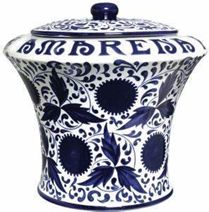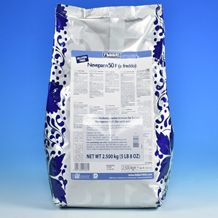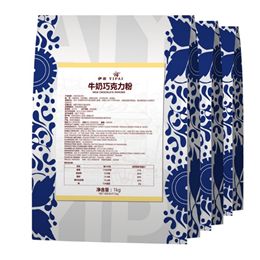
Nicola Fabbri, CEO of Fabbri 1905 Spa with the faentino ceramic on
the background
With decision issued on July 29 2020 and notified to the parties on August 11 2020 Shanghai Yangpu District People's Court (herein refer to as the Court) has recognized Fabbri's packaging -bearing the famous blue-and-white "faentino" decoration- as enjoying high reputation to the extent of art. 6.1 of Anti-Unfair Competition Law ("AUCL").
In November 2019 Fabbri (Shanghai) Food Trading Co., Ltd. (herein referred to as Fabbri Shanghai) has initiated a civil litigation against Yi Pai Chocolate (Tianjin) Co., Ltd. (herein refer to as Yipai) and Beijing Jin Mai Xing Long Food Co., Ltd. (herein referred to as Jinmai) claiming the violation of the art. 6.1 of Anti-Unfair Competition Law due to a slavish imitation of its famous packaging.
The Italian century-old Fabbri brand has set up a company in Shanghai in the year 2009 and since then has constantly developed the Chinese market.
In the year 2019, Fabbri Shanghai sued Yipai and Jinmai for use of packaging with decorative features with a "blue-and-white theme" which are confusingly similar to those used in the Fabbri's packaging.

Traditional Fabbri Amarena Ceramic
The case at issue relates to the packaging of certain Fabbri products such as ice cream preparations.
Herein a photo of the original Fabbri packaging where the distinctive faentino decoration has been applied to the side of the packaging.

The photo herein on the contrary shows the use done by Yipai of the similar unregistered decoration.

Reading the Court decision, we found that the judges approached the decision through a three steps reasoning:
- Is Fabbri Shanghai's product packaging enjoying
certain influence in the Chinese market?
The court held that, due to Fabbri Shanghai's long-term and extensive promotion as well as a large number of marketing and selling activities, Fabbri packaging enjoy certain influence. - Is Yipai product packaging similar to Fabbri
Shanghai's product packing?
The court held that based on overall visual effects, Yipai product packaging is similar to Fabbri Shanghai's product packaging. - Would there be confusion among the relevant
public?
The court held that relevant public might confusingly believe that there are connections between the defendants and Fabbri Shanghai due to the similarity of both parties' product packaging.
Comments
It is worth mentioning that a typical bottle neck in such kind of cases is the difficulty to obtain the recognition by the Court that the packaging is largely known to consumers.
Under the previous legislation (in force until 2017) it was required that the object of protection was "famous". Under the current AUCL the word "famous" has been substituted with the sentence "enjoy certain (high) reputation".
To prove such high reputation, it is necessary to provide the court with a large amount of evidence of use. Therefore, in such kind of cases the plaintiff has to contribute with a massive work of evidence collection starting from the time in which the company entered the market and with special focus on the last 3-5 years.
Overall, we wish also to comment that cases decided by Chinese Courts under art. 6.1 of Anti-Unfair Competition Law due to a slavish imitation of unregistered product/packaging shape or passing off are rare and even more rare are cases in which foreign companies are awarded with such kind of protection.
We might be not-perfectly exhaustive due to certain characteristics of the publication system of the Court decisions, but we are only aware of the following prior cases involving foreign companies:
- Ferrero Rocher (2006),
- Crocs (2013),
- Lego Friends (2017),
- Rimowa (2016),
- L'Occitane (2019),
- Foreo (2019)
- Ferrero Kinder Joy (2019).
A very exclusive club in which a Shanghai Court - with a fair and clever judgement - has welcomed Fabbri Faentino decoration in the Covid summer of 2020.
HFG Law Firm represented Fabbri in the case.
The content of this article is intended to provide a general guide to the subject matter. Specialist advice should be sought about your specific circumstances.

